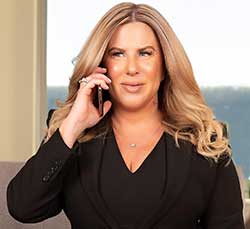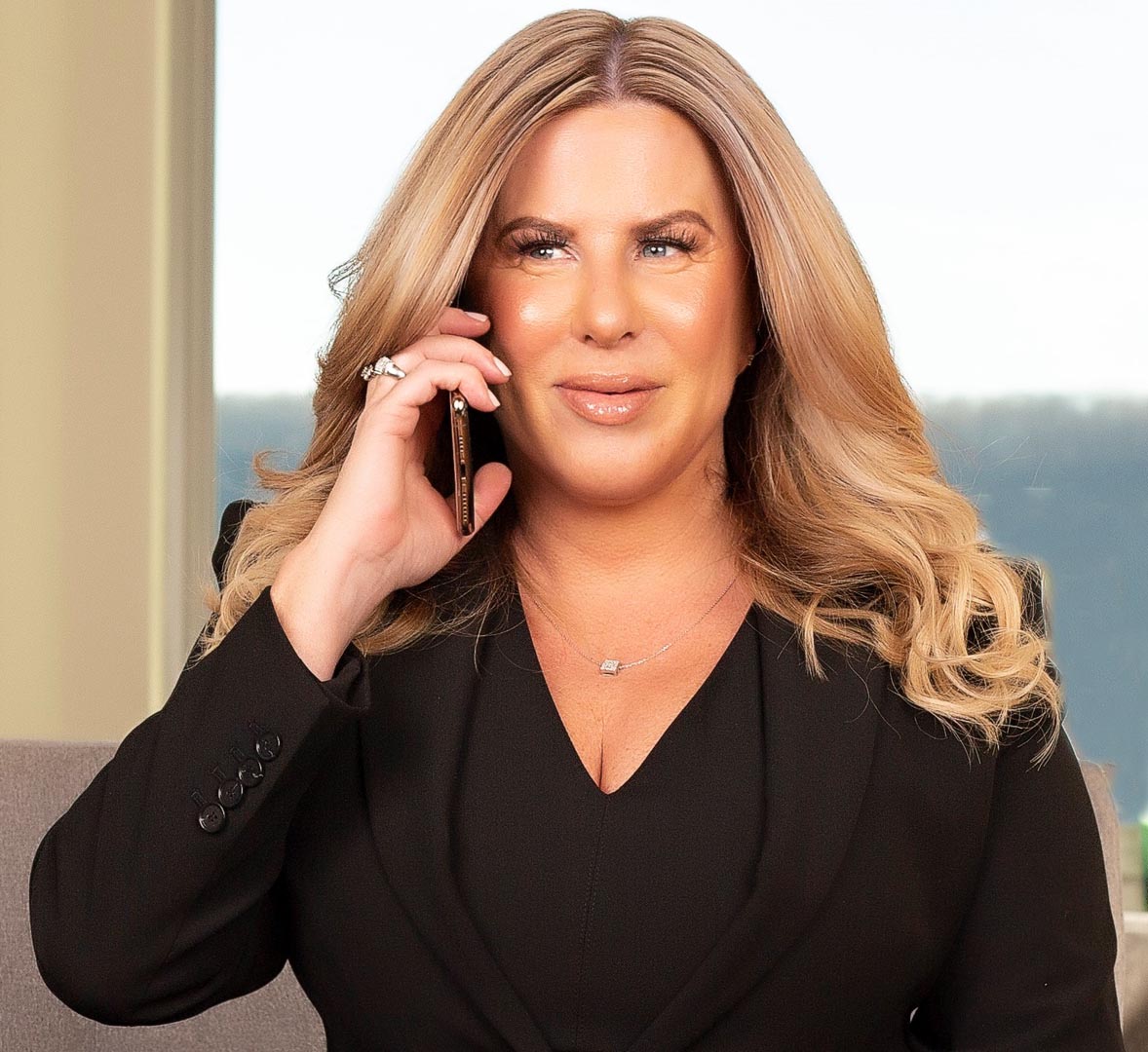White Plains Employment Discrimination Lawyer
Westchester County employment and labor lawyer Claudia Pollak explains the protections afforded to workers under the federal and New York state discrimination laws.
Despite growing awareness and public demands for equity, fairness, and a respectful workplace, discrimination and harassment remain pervasive problems across industries. While employees should be able to perform their jobs free from unequal treatment, harassment, or a hostile work environment, many workers continue to face discriminatory behavior and abusive conduct. These offenses often come at the hands of supervisors, managers, or co-workers, creating significant challenges for victims who are simply trying to earn a living.
To address these persistent workplace injustices, a variety of federal and state laws provide avenues for recourse. Federal anti-discrimination statutes such as Title VII of the Civil Rights Act of 1964, the Americans with Disabilities Act, and the Age Discrimination in Employment Act aim to combat workplace discrimination based on factors like race, religion, gender, national origin, disability, or age. In 2019, New York State enacted sweeping workplace harassment and discrimination legislation that significantly expanded the legal safeguards for employees and independent contractors. Therefore, under New York law, there is a lower threshold for proving harassment, eliminating the previously required standard (which mirrored the federal standard) that the harassing conduct must be considered “severe or pervasive” to be actionable.
While these laws provide critical tools for addressing workplace abuses, navigating the complexities of employment law can be daunting. Engaging a knowledgeable White Plains employment discrimination attorney like Claudia Pollak is one of the most effective ways to fully understand and assert your rights. With her extensive experience in employment law, Claudia helps victims of workplace discrimination and harassment explore their legal options and seek the justice they deserve under both federal and state law. Her expertise ensures that clients receive the guidance necessary to utilize the protections available to them, empowering them to hold employers accountable and fostering a fairer workplace environment.
Westchester County employment attorney Claudia Pollak provides a comprehensive explanation of the legal protections available to workers under federal and New York State anti-discrimination laws.
What Characteristics Are Protected from Workplace Discrimination?
Employees are entitled to protection under the law from discriminatory employment practices. This includes unfair treatment such as wrongful termination, demotion, wage disparities compared to coworkers performing the same job, or being subjected to discourteous, bullying, or physically threatening behavior. However, these actions are prohibited when they are based on the presence of certain personal characteristics.
In New York, the following individual characteristics are protected from workplace discrimination:
- Age – Employees are protected from age-based discrimination, particularly individuals aged 40 and older, under both federal and state laws.
- Race – Discrimination based on race or ethnicity, including hiring, promotions, or workplace treatment, is strictly prohibited.
- Religion – Workers have the right to practice their religion without fear of discrimination, and employers are required to provide reasonable accommodations for religious practices.
- National Origin – Protection against bias based on a person’s country of origin, ancestry, or cultural background is guaranteed under anti-discrimination laws.
- Sexual Orientation – Employees cannot be treated unfairly or harassed due to their sexual orientation.
- Gender Identity or Expression – Protections extend to individuals whose gender identity or gender expression differs from societal norms or expectations.
- Military Status – Employees who are veterans or currently serving in the military are protected against discrimination based on their service.
- Sex – This includes protections from gender-based discrimination, harassment, and unequal treatment.
- Disability – Workers with physical or mental disabilities are entitled to reasonable accommodations and must not face adverse employment actions due to their disabilities.
- Predisposing Genetic Characteristics – Discrimination based on genetic information or predisposition to certain medical conditions is prohibited.
- Familial Status – Individuals are protected from workplace bias due to their role as parents, guardians, or family caregivers.
- Marital Status – Employees cannot be treated unfairly based on whether they are single, married, divorced, or widowed.
- Domestic Violence Victim Status – Employees who are victims of domestic violence have protections to prevent workplace discrimination or retaliation related to their status.
These laws are designed to create a workplace environment where employees are treated fairly and equitably, free from discrimination and harassment based on their personal characteristics. Employers are required to uphold these standards, and can face legal consequences for violations.
Are All Types of Employers Subject to Discrimination Laws?
Yes, New York’s employment discrimination laws apply broadly across various types of employers. This includes not only private companies and businesses, but also nonprofit organizations, employment agencies, labor unions, and government agencies.
Are Independent Contractors Protected from Discrimination?
Yes, under New York’s workplace discrimination laws, protections extend beyond traditional employees to include “non-employees.” This category of workers encompasses freelancers, independent contractors, subcontractors, vendors, consultants, domestic workers, and temporary workers. Individuals who work in this classification are safeguarded against workplace discrimination to ensure they are treated fairly and without bias in their professional endeavors.
Are Workers Protected from Retaliation When They Complain About Discrimination?
Yes, both employees and independent contractors are protected from retaliation when they oppose workplace discrimination. This protection applies to individuals who file internal complaints with their supervisors or human resources departments, as well as those who file, or threaten to file, formal complaints with courts or state and federal agencies, such as the Equal Employment Opportunity Commission (EEOC) or the New York State Division of Human Rights.
Retaliation claims are distinct from, and in addition to, underlying discrimination claims. Workers are entitled to recourse if they acted in good faith by reporting or opposing conduct they believed to be unlawful discrimination based on a protected characteristic. Retaliatory actions by an employer—such as termination, demotion, or negative performance evaluations—when taken in response to such complaints, are prohibited by law. These protections ensure that workers have recourse when they speak out against discrimination and are further harmed or mistreated.
Are Employees Protected from Mean Bosses?
Having a mean, unappreciative, or unfair boss is unfortunately a common experience, but such behavior is generally not illegal unless it is tied to discrimination based on a protected characteristic. In New York, for an employee to bring a viable claim of discrimination, they must demonstrate that the unfair or harassing treatment they experienced was motivated by their race, sex, age, disability, or another protected characteristic under the law.
To succeed in a legal claim, an employee must show a connection between the employer’s discriminatory intent and the adverse treatment. This could include harassment, less favorable employment terms, or other forms of unequal treatment.
Discrimination can often be demonstrated by comparing how an employer treats employees with different personal characteristics. For instance, an inference of discrimination might arise if an employer enforces a uniform policy exclusively for Black employees, while employees of other ethnic groups are allowed to wear regular clothing. However, such direct comparisons are not always required to establish a discrimination claim in New York.
New York law provides a broader standard, requiring employees to show that they were treated “less well” because of a protected characteristic. This means that even if an employer’s behavior doesn’t rise to the level of severe or pervasive harassment, it can still be actionable if it is linked to a discriminatory motive. This legal framework ensures that employees are protected from workplace discrimination, even when it manifests in subtle or indirect ways.
What Is the Difference Between Discrimination and Harassment?
While workplace discrimination and harassment are distinct forms of misconduct, they both stem from prejudice and can overlap in their impact on employees. Discrimination occurs when one group of employees is favored over another or is subjected to inferior terms, conditions, or privileges of employment based on personal characteristics such as race, age, gender, or other protected traits. For example, consistently failing to promote Black employees, while promoting employees of other races, is a clear form of discrimination. Harassment, on the other hand, involves offensive behavior or comments directed at individuals because of their identity or personal characteristics. Harassment often creates a hostile work environment, which goes beyond unequal treatment to include taunting, insults, or offensive behavior such as demeaning comments, racial slurs, inappropriate jokes, or applying stricter work rules to members of a specific group. For instance, while failing to promote Black employees is discriminatory, subjecting them to racial epithets, demeaning comments, or humiliating treatment also constitutes harassment.
What are the Legal Standards for Discrimination and Harassment?
Federal Law:
Under federal law, proving a hostile work environment requires showing that harassment is severe or pervasive, such that a reasonable person would find it abusive or harassing. This standard is relatively stringent, requiring repeated or egregious conduct.
New York State Law:
In contrast, New York State law provides broader protections for workers. Employees only need to demonstrate that they were subjected to inferior terms, conditions, or privileges of employment due to their personal characteristics. However, the law clarifies that minor annoyances or trivial inconveniences do not meet the threshold for discrimination or harassment.
Identifying a Hostile Work Environment
A hostile work environment is characterized by factors such as:
- The frequency and severity of discriminatory conduct.
- Whether the behavior is humiliating, or verbally or physically threatening.
- Whether the conduct interferes with an employee’s work performance or ability to do their job.
Although isolated incidents may not always establish a hostile work environment, a single incident can be sufficient if it is particularly severe. For example, one egregious act of harassment, such as a serious threat or overtly discriminatory statement, can meet the legal standard for a hostile work environment.
What Are the Consequences of Discrimination?
Discrimination in the workplace can lead to a wide range of harmful outcomes for workers, directly affecting their careers, financial stability, and overall well-being. These consequences often stem from an employer’s discriminatory practices, biased beliefs, or harassing behavior. Some of the most common outcomes include:
- Failure to Hire – Qualified candidates may be overlooked due to their race, gender, age, disability, or other protected characteristics.
- Failure to Promote – Employees may be denied advancement opportunities despite their qualifications or performance, often due to discriminatory biases.
- Lower Wages – Workers may receive unequal pay for performing the same job as their peers, based on protected characteristics such as gender or race.
- Reduced Benefits – Discrimination may result in certain employees being offered fewer or less favorable benefits compared to others.
- Failure to Offer Advanced Training – Employers may deny training opportunities that are essential for career growth, disproportionately affecting certain groups of employees.
- Workplace Segregation – Employees may be assigned to specific roles, locations, or shifts based on discriminatory factors, perpetuating inequality within the workplace.
- Disproportionate Discipline – Workers from protected groups may face harsher or more frequent disciplinary actions, such as suspensions, warnings, or write-ups, for behavior that does not warrant such measures.
- Demotions – Employees may be unfairly reassigned to lower positions or stripped of responsibilities due to discriminatory motivations.
- Layoffs – Discrimination can result in biased layoff decisions, targeting specific groups of workers for termination during downsizing.
- Wrongful Termination – Employees may be unlawfully fired because of their race, gender, age, disability, or other protected characteristics, rather than legitimate performance-related reasons.
Each of these actions not only damages the individual worker but also undermines workplace fairness and equality. Individuals who are the victims of workplace discrimination have the right to seek recourse through legal channels to address these injustices and protect their livelihoods.
Documenting and Reporting Workplace Discrimination
When an employee or contractor experiences workplace discrimination based on a protected category, whether the offender is a co-worker, supervisor, manager, client, or customer, it is crucial to take immediate steps to document and report the incidents. Following a clear process can help protect your rights and build a strong case if legal action becomes necessary.
Step 1: Document the Discriminatory Behavior
The first step is to meticulously document all instances of discrimination or harassment. This includes:
- Noting Each Incident: Record specific details about each occurrence, including the date, time, and location of the incident, as well as the individuals involved and any witnesses present.
- Capturing Inappropriate Behavior or Comments: Write down what was said or done and how it impacted you or others.
- Saving Evidence: Preserve any supporting evidence, such as:
- Email or text messages.
- Screenshots of social media posts or online communications.
- Photos, videos, or audio recordings that capture discriminatory actions or comments.
Thorough and accurate documentation creates a detailed record of the abusive or discriminatory behavior, which can be critical if the situation escalates or legal action becomes necessary.
Step 2: Report the Discrimination
The next step is to report the discrimination to the appropriate person or department within your workplace. To do this:
- Review Company Policies:
- Check your employee handbook or any employment discrimination policies provided by your employer. These documents often outline the proper procedures for reporting workplace discrimination.
- Identify the Correct Reporting Channel:
- If a policy exists, follow the specified steps to file your complaint.
- If no formal policy is in place, report the incident to your human resources (HR) department or to a supervisor or manager with hiring and firing authority.
- Submit Your Report in Writing:
- Whenever possible, file your complaint in writing. This creates a clear record of the report.
- If submitting a verbal report, make a note of the date, time, and the name of the person to whom you reported the incident.
Step 3: Monitor the Employer’s Response
Employers are legally obligated to investigate and address reports of discrimination in a prompt and thorough manner. To ensure accountability:
- Keep Track of Your Complaint:
- Maintain copies of all written complaints or correspondence with your employer.
- Record any follow-up actions taken by your employer and whether the issues were resolved.
- Document Employer Responses:
- If your employer fails to investigate the complaint or take appropriate action, note the lack of response or insufficient measures.
- If the discrimination or harassment continues, update your records with any new incidents.
Step 4: Seek Legal Advice if Necessary
If the situation is not resolved or if the discrimination involves individuals in positions of authority, it may be necessary to consult with an employment lawyer. An attorney can:
- Advise you on your rights under federal, state, and local discrimination laws.
- Assist in filing complaints with external agencies, such as the Equal Employment Opportunity Commission (EEOC) or the New York State Division of Human Rights.
- Represent you in pursuing legal action against the employer, if warranted.
Carefully documenting and reporting workplace discrimination is an essential first step in protecting your rights. By maintaining detailed records and following proper procedures, you create a foundation for addressing the issue internally or, if needed, through legal channels.

Claudia Pollak
Claudia Pollak, Esq. is an experienced Westchester and NYC-based employment lawyer representing employees facing discrimination, retaliation or wrongful termination because of their race, disability, pregnancy, sexual orientation, gender, or other protected characteristic. She also advises on executive severance agreements and restrictive covenants. Call her at 914-LAW-9111 (914-529-9111) for a free consultation.
Employment Discrimination
Employment Discrimination
Employees in Westchester County and other parts of New York state are protected from discrimination in employment based on a number of personal characteristics.
Sexual Harassment
Sexual Harassment
Sexual harassment at the workplace has always existed, but the #metoo movement has brought this ugly secret out into the glaring light of day.
Disability Discrimination
Disability Discrimination
Being disabled can impact individuals in several important ways. For a great many Americans, however, it does not prevent them from working.
Breach of Executive Employment Agreement
Breach of Executive Employment Agreement
Despite the existence of an enforceable contract, employers sometimes terminate an executive’s employment before the end of term, and in violation of the employment agreement.
Gender Discrimination
Gender Discrimination
There are many types of gender discrimination occurring in the workplace, including discrimination based on sexual orientation, pregnancy, or transgender or non-binary status.
Hostile Work Environment
Hostile Work Environment
Some of our most vulnerable populations are experiencing increasingly stressful employment situations. In fact, many workers in America (up to 1 in 5) feel they work in a hostile or abusive work environment.
Racial Discrimination
Racial Discrimination
While many businesses have openly acknowledged the problems of discrimination and inequity facing black workers in America as a result of the Black Lives Matter movement, racial discrimination still regularly occurs in the workplace.
Severance Agreements
Severance Agreements
Whether your position is being eliminated in corporate downsizing, or you are getting laid off or fired for another reason, at some point in your life you may find yourself reviewing a severance agreement.
Pregnancy Discrimination
Pregnancy Discrimination
The last thing you need when you’re starting a family – or growing one – is financial uncertainty or the stress and anxiety that comes from becoming the target of discriminatory treatment at work because of your pregnancy.
New York Equal Pay Law
New York Equal Pay Law
New York Labor Law §194, requires that employees of a particular establishment be paid a wage that is equivalent to the wages paid to employees of the opposite sex, or of a different race or sexual orientation, or who are members of any other class of employees.
GLOWING CLIENT REVIEWS
She puts the needs of her clients first.
Amanda Moody
Very knowledgeable lawyer. Very commendable.
Thomas Sauer
I connected with Claudia for assistance negotiating an employment agreement. Claudia was very responsive right from the start. Once we agreed to move forward, she worked over a weekend and we had calls on a Saturday and Sunday to be in a position to respond by Monday. Her detailed and thoughtful review was extremely valuable to me. She explained all of her rationale and provided me with a detailed response which I used. I am so glad I worked with Claudia and would highly recommend her services!
Salvatore Sama
I wish I could give her a million stars.
Lisa Smith
Its hard to find an attorney who cares about their clients. Well I did Her name is Claudia Pollack she was very fair with me. She provided the service I have never have gotten from any attorney. She is knowledgeable about the law and she explained to me every step of the way what she was doing and why. She had patient’s with me, pretty much held my hand and explained all my options.When Claudia says she is going to do something she does. Her communication level was super.Claudia whordked hard and fast and got the job done.Having hired Claudi I was able the have a lot less stress and most of all slept very well at night knowing that she was on my side
Steven Katz
![]()
I consider myself fortunate to have been introduced to Claudia, who performed flawlessly on my behalf in extremely difficult and trying conditions. As a senior level executive, my expectations for professionalism and service delivery are high and I can honestly say that Claudia went far above and beyond my expectations to represent my best interests. She is tenacious and fights for her clients rather than pursuing the path of least resistance. Her case preparation was extremely thorough and diligent. When combined with her experience and high level of competence in employment law, she is a formidable adversary to any employer, large or small, who exercises digressions in employment tactics. It is without reservation that I recommend Claudia’s services to handle any employment matter, large or small, that requires legal finesse.
Richard Hayes
TESTIMONIALS
Smart, knowledgeable and accessible. Claudia has expertly represented me since 2014 with several successful contracts negotiations.
Very knowledgable lawyer, very commendable.
She puts the needs of her clients first.
I wish I could give her a million stars.



